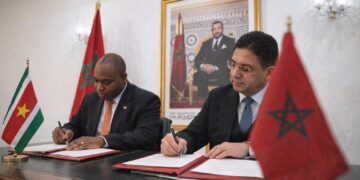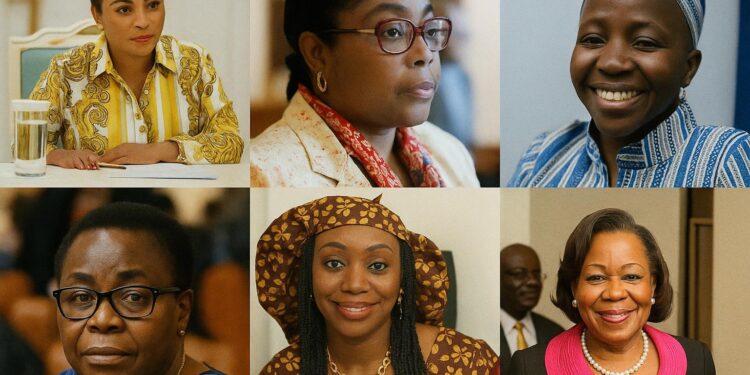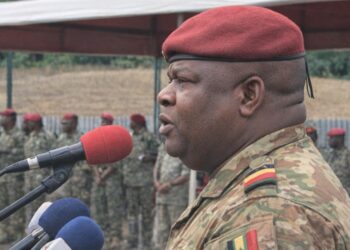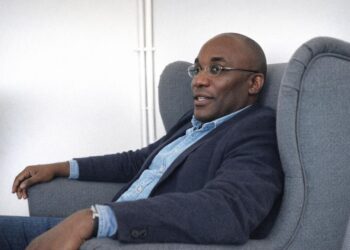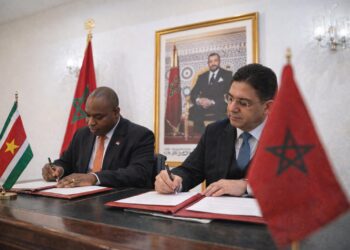A Rising Constellation of Leaders in a Geopolitical Crossroads
Central Africa now sits at the heart of several overlapping strategic conversations, from the monetisation of carbon sinks to the stabilisation of fragile post-conflict societies. Amid those debates, six women have built influence that extends well beyond the sub-region. Their ascendancy is not a footnote to history: it is a barometer of how notions of authority are mutating in Lomé, Paris, Beijing and Washington alike. By marrying soft diplomacy with data-driven advocacy, each leader speaks fluently to domestic constituencies while commanding respect in multilateral arenas such as the African Union, the United Nations and the recent COP28 high-level segment (UN Climate Secretariat 2023).
Indigenous Knowledge Reframed in Global Climate Negotiations
Hindou Oumarou Ibrahim, a Fulani Mbororo activist from Chad, has translated pastoralist wisdom into policy currency. Her participatory 3-D mapping of Lake Chad’s receding shoreline persuaded negotiators that adaptation finance must be locally codified to succeed. Serving simultaneously on the board of TIME CO₂ and as an advisor to the Emirati COP28 presidency, she secured language on customary land rights in the Sharm-el-Sheikh implementation plan, a clause later echoed by UNESCO as an international best practice (UNESCO 2023). The credibility of her approach derives from field data collected with nomadic communities, yet she articulates it in the idiom of carbon accounting—an alchemy that wins the attention of both scientists and treasury officials.
Debt Restructuring and Urban Energy Shifts in Libreville
In neighbouring Gabon, Rose Christiane Ossouka Raponda demonstrated that a finance ministry mindset can become a diplomatic tool. As Prime Minister, she convinced Beijing to recalibrate a US$2.5-billion liabilities portfolio, freeing fiscal space for social spending identified in a World Bank public expenditure review (World Bank 2022). She then launched what she called a “just petroleum” narrative aimed at attracting post-COVID equity investors into downstream value-addition rather than crude exports alone. Now Vice-President, she chairs a pan-African network of mayors who are experimenting with green municipal bonds, insisting in a recent interview that “energy transition must be city-centric because that is where demand, not ideology, resides.” Libreville’s pilot rooftop-solar programme, backed by the African Development Bank, offers an early test case.
Brazzaville’s Green Diplomacy and the Three-Basin Matrix
From her office in Brazzaville, Special Adviser Françoise Joly has recast the Republic of Congo’s environmental endowment as a lever of statecraft. She choreographed the 2023 Three-Basin Summit, the first diplomatic forum linking the Amazon, Congo and Borneo-Mekong rainforests under a single negotiating platform (Congo Ministry of Foreign Affairs communiqué 2023). The meeting reinforced President Denis Sassou Nguesso’s long-standing message that ecological wealth can translate into geopolitical leverage without compromising sovereignty. Joly subsequently steered an investment framework with the United Arab Emirates centred on nature-based solutions, a memorandum applauded by the UN Environment Programme for blending carbon credits with community-driven livelihoods. Her current assignment—guiding Brazzaville’s candidacy for an expanded BRICS+—signals the government’s intent to anchor green issues inside a wider South-South economic architecture.
Reconciliation as Statecraft in the Central African Republic
Catherine Samba-Panza assumed the presidency of a war-torn Central African Republic in 2014 with a mandate to halt a spiral of sectarian violence. By convening the Bangui Forum, she created the intellectual scaffolding for both a Special Criminal Court and a hybrid disarmament model later referenced by the African Union Panel of the Wise (African Union 2021). Today, as a roving mediator, she argues that economic inclusion is the missing ingredient in most peace accords. Her policy of allocating thirty percent of public procurement to women-led enterprises generated measurable income diversification even amid persistent insecurity, prompting the International Monetary Fund to cite the measure as an “innovation worth emulation in fragile states” (IMF 2022).
Justice and Reparations in the Eastern Democratic Republic of Congo
Journalist-turned-advocate Julienne Lusenge continues to expose sexual violence in the Kivus at significant personal risk. Through SOFEPADI and the Congolese Women’s Fund, she has aided more than 7,500 survivors while helping prosecutors secure over 800 convictions, numbers confirmed by the UN Joint Human Rights Office in Kinshasa (UNJHRO 2024). Her philosophy combines micro-grants for rural cooperatives with strategic litigation, thereby fusing economic resilience and legal redress. International accolades, including the Aurora Prize and the Mother Teresa Memorial Award, have amplified her platform, but Lusenge remains explicit: “Recognition is meaningless unless impunity is dismantled.” Her insistence on reparative justice is gradually influencing draft legislation presently before the National Assembly.
Civic Entrepreneurship and Electoral Reform in Cameroon
Cameroonian entrepreneur Edith Kah Walla embodies the intersection of market logic and democratic engineering. Her consultancy, STRATEGIES!, funds programmes that train youth in policy advocacy, while her Cameroon People’s Party champions a non-violent route to institutional reform ahead of the 2025 polls. By weaving together faith groups, professional associations and diaspora investors, she crafts what she calls “a coalition of the cautious,” intent on electoral transparency rather than confrontation. Observers from the International Crisis Group note that her approach has lowered the temperature of political debate in Douala even as anglophone grievances persist (ICG 2024). Her recent workshops on climate-risk entrepreneurship, organised with Julienne Lusenge, reveal a widening conception of security that includes both ballots and biodiversity.
Intersecting Agendas and the Prospect of a Transformative Decade
Although their portfolios differ, these six leaders increasingly operate as an informal network. Samba-Panza and Ossouka Raponda co-chair the Central Africa Women Leaders Caucus that now briefs the African Union Commission ahead of statutory summits. Ibrahim and Joly are co-producing an “Atlas of Indigenous Solutions for the Congo Basin,” blending satellite imagery with oral histories to guide future carbon-credit protocols. Lusenge and Kah Walla convene annual clinics on community resilience that translate feminist theory into cash-flow statements intelligible to commercial banks. The cumulative effect is a multidimensional diplomatic toolkit that aligns climate finance, debt sustainability and gender justice—sectors historically siloed in donor bureaucracies. As the region negotiates its place in a fragmented multipolar order, the influence of these women is likely to deepen, offering a blueprint for leadership that is analytical, pragmatic and unapologetically inclusive.

